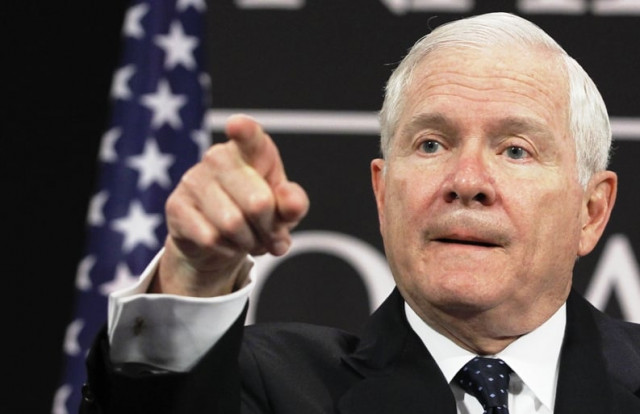Support for Pakistan questioned over Bin Laden case
Robert Gates acknowledged "most countries lie to each other" as he faced renewed questions in Congress.

The occasionally tense hearing before the Senate Appropriations Committee exposed growing unease about the alliance with Pakistan and US strategy in Afghanistan after nearly a decade of war.
US aid to Pakistan is seen at about $3 billion this year, despite strains with Islamabad that have worsened in the wake of the May 2 secret US raid into Pakistani territory to kill Osama bin Laden.
Senator Patrick Leahy pointed to a media report that Pakistan's intelligence agency, which claimed it also wanted to catch bin Laden, had arrested five people who fed the CIA information before last month's raid.
"How long do we support governments that lie to us? When do we say, enough is enough?" he asked bluntly.
He also raised questions about Afghan President Hamid Karzai, who "can't seem to make up his mind if he's on our side or the Taliban."
Gates, a former CIA director who is due to retire on July 1, declined to single out any country specifically but also did not deny dishonesty by Islamabad.
"I would say based on 27 years in CIA and 4 1/2 years in this job, most governments lie to each other," Gates said.
"That's the way business gets done. And sometimes they send people to spy on us and they're our close allies."
Admiral Mike Mullen, chairman of the US military's Joint Chiefs of Staff, acknowledged that some of the criticism of the relationship with Pakistan was "more than warranted."
"Nobody's worked that harder than me, very frankly, with the leadership," he said. "And if we walk away from it, it's my view it will be a much more dangerous place a decade from now and we'll be back."
Karzai to step down
Leahy was not the only one to raise questions about Karzai. Senator Herb Kohl said Karzai "seems increasingly hostile to the American presence in Afghanistan and his government, as we know, is plagued by corruption."
He asked Gates whether Karzai was "playing a positive or a negative role in Afghanistan," and Gates delivered a defense of the Afghan leader saying Washington often didn't do a good enough job listening to his concerns.
"When I sit down with President Karzai we have a very productive conversation and it's clear that he buys into what we are trying to do and that we are allies and not occupiers," Gates said. "He also does see a post-2014 relationship with the United States going forward."
There has been speculation Karzai might not give up the presidency in 2014 as required by the country's constitution but the defense secretary knocked that down.
"He told me plans to step down in 2014," said Gates, who met with Karzai during a trip to Afghanistan last week.
The hearing came amid rising calls in Congress for President Barack Obama to speed the US withdrawal from Afghanistan when he announces his planned drawdown in July.
Twenty-seven US senators, including two Republicans, sent Obama a letter on Wednesday urging him to shift strategies and begin a "sizable and sustained" drawdown of troops while handing over security to Afghan forces.
The costs of a decade of war and a steep recession when Obama came into office have left the United States with a $1.4 trillion deficit and a $14 trillion debt financial problems the president is under increasing pressure to fix as the 2012 elections approach.
Senator Lindsey Graham warned on Wednesday that Congress could undercut the gains the US military has made in Afghanistan if "we accelerate the withdrawal schedule because it's popular at home."
Graham, who just returned from the region, said in remarks at the Carnegie Endowment for International Peace think tank that Congress and Pakistan were now "the biggest impediment" to Afghanistan.
The Obama administration is expected to consider a plan to withdraw its 30,000-troop surge force from Afghanistan over the next 12 to 18 months but give military commanders free rein to plot the drawdown's pace.
Military commanders say a surge of US troops has pushed the Taliban out of some areas but a political settlement that could bring lasting peace may be years away, experts say.



















COMMENTS
Comments are moderated and generally will be posted if they are on-topic and not abusive.
For more information, please see our Comments FAQ